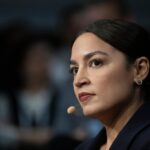

Hunter Biden‘s presidential pardon from his father is extraordinary enough that the last comparable incident was former President Richard Nixon’s pardon in 1974.
On Sunday night, President Joe Biden announced a “full and unconditional pardon” on all “offenses against the United States which he has committed or may have committed or taken part in” over an 11-year period after repeatedly vowing he wouldn’t.
“I have never seen language like this in a pardon document that purports to pardon offenses that have not apparently even been charged, with the exception of the Nixon pardon,” Margaret Love, U.S. pardon attorney from 1990 to 1997, told Politico.
“Even the broadest Trump pardons were specific as to what was being pardoned,” she added.
Samuel Morison, an experienced lawyer focused on clemency in the Justice Department’s Office of the Pardon Attorney, also said the only other pardon of the same nature he could think of was that of Nixon.
Nearly all pardons target specific allegations or charges, making Hunter Biden’s unusual. The only other precedent was President Gerald Ford’s highly controversial move in which he pardoned “all offenses against the United States” that Nixon “has committed or may have committed” over the course of his presidency.
After winning a historic landslide in 1972, Nixon’s presidency was sunk in 1974 by the Watergate scandal, in which aides of his were implicated in illegal campaign activity. He was pressured to resign the presidency by August, leaving the White House in a helicopter on Aug. 9, 1974. The prospect of indicting a former president became the first major issue for Ford.
Less than a month later, Ford announced Nixon’s sweeping pardon on Sept. 8, arguing it was needed for the country to move on from the scandal. The public backlash was immediate and severe, beginning with the protest resignation of White House press secretary Jerald terHorst. Conspiracy theories quickly proliferated that the pardon was part of a “corrupt bargain” between Ford and Nixon.
Ford also faced backlash from Congress, resulting in his becoming the first sitting U.S. president to give sworn congressional testimony on Oct. 17, 1974. He gave an opening statement and answered questions regarding the circumstances surrounding the pardon.
CLICK HERE TO READ MORE FROM THE WASHINGTON EXAMINER
Though posterity has judged the move more favorably, with Ford even being granted the John F. Kennedy Foundation’s Profile in Courage Award in 2001, the pardon set Ford’s presidency off on a rough start that his public approval rating never recovered from. After he started with a 71% approval rating, it plummeted to 50% after the pardon. The pardon has also been cited as a leading reason for the Republican losses in the 1974 midterm elections.
With details still swirling about why Joe Biden decided to reverse course and pardon his son, commentators have drawn attention to what negative effects the decision will have on his legacy.






